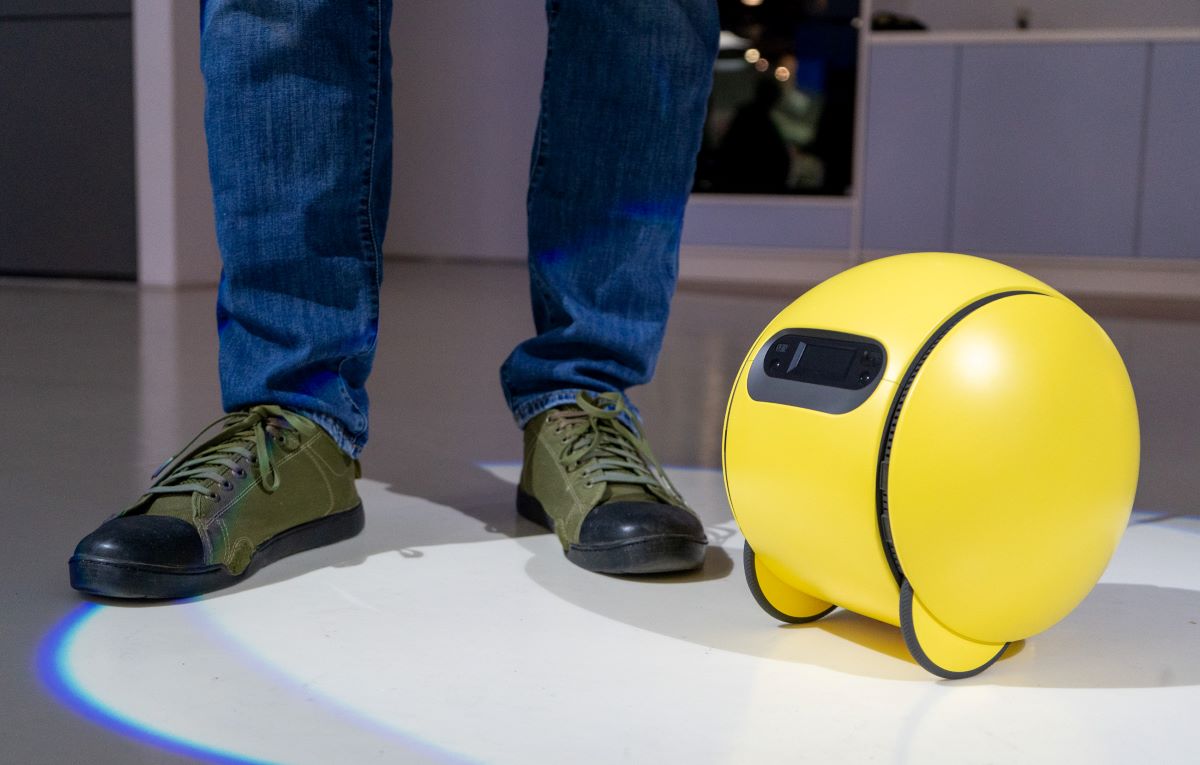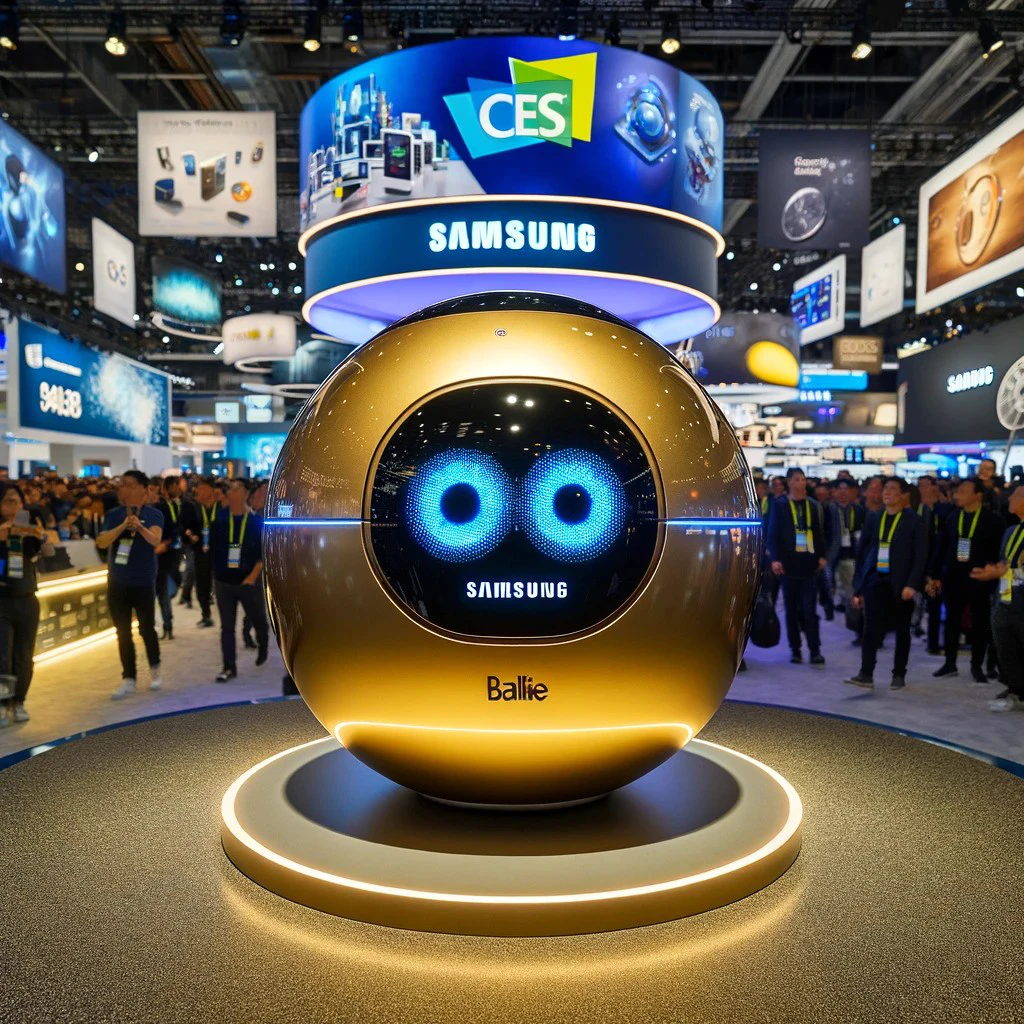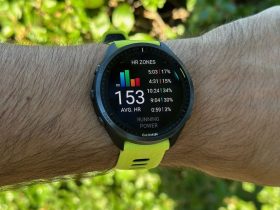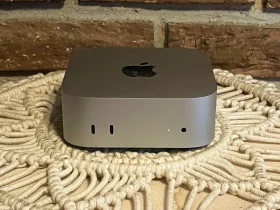Remember Ballie, Samsung’s spherical home robot introduced at CES 2020? It might have slipped your mind, but Samsung reintroduced it at this year’s keynote, now enhanced with some AI-driven upgrades.
The revamped Ballie, showcased during Samsung’s CES 2024 press conference in Las Vegas, is about the size of a bowling ball and is equipped with a battery that lasts two to three hours.
It features a spatial lidar sensor for navigating rooms and avoiding obstacles, along with a 1080p projector with dual lenses, allowing it to project movies, video calls, or even function as a secondary PC monitor.
According to Samsung’s press release, Ballie can project images and stream content on walls, automatically adjusting the picture based on wall distance and lighting conditions. It can also detect a person’s posture and facial angle, optimizing the projection angle accordingly.
Ballie can be controlled via voice commands or even through text messages (e.g., “play a movie on the nearest wall”). In the latter scenario, Ballie uses a chatbot to confirm requests before carrying them out.
Like other home robots, Ballie can automate smart lights and, thanks to its built-in infrared transmitter, can even control “non-smart” devices like air conditioners and older TVs.

The robot also maps floor plans, identifying the locations of smart devices within a home.
Samsung is promising more than just these basic features, including automatic reminders to water plants, access to remote medical services for elderly household members, and personalized interactions based on who is nearby.
With its front and rear cameras, Ballie can detect and analyze its surroundings, learning user patterns over time.
However, details regarding these additional features—as well as Ballie’s availability and pricing—remain unclear.
The big question is whether these features will be enough to persuade homeowners to purchase Ballie if and when it becomes available.
Home robots have had a mixed track record, as seen with Amazon’s recent struggles and Mayfield Robotics’ failed attempt with Bosch, which ended before any units were shipped to customers.







Leave a Reply